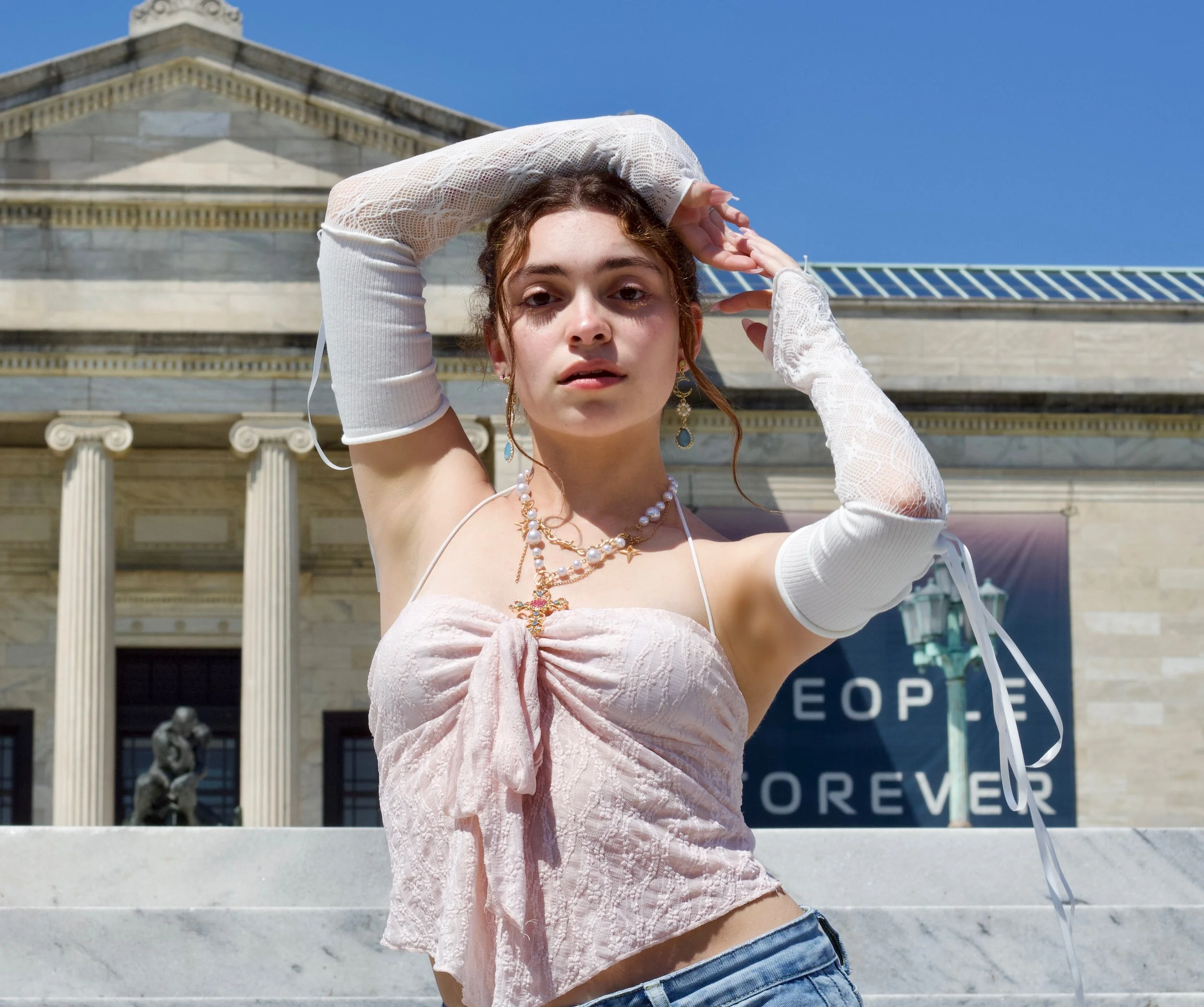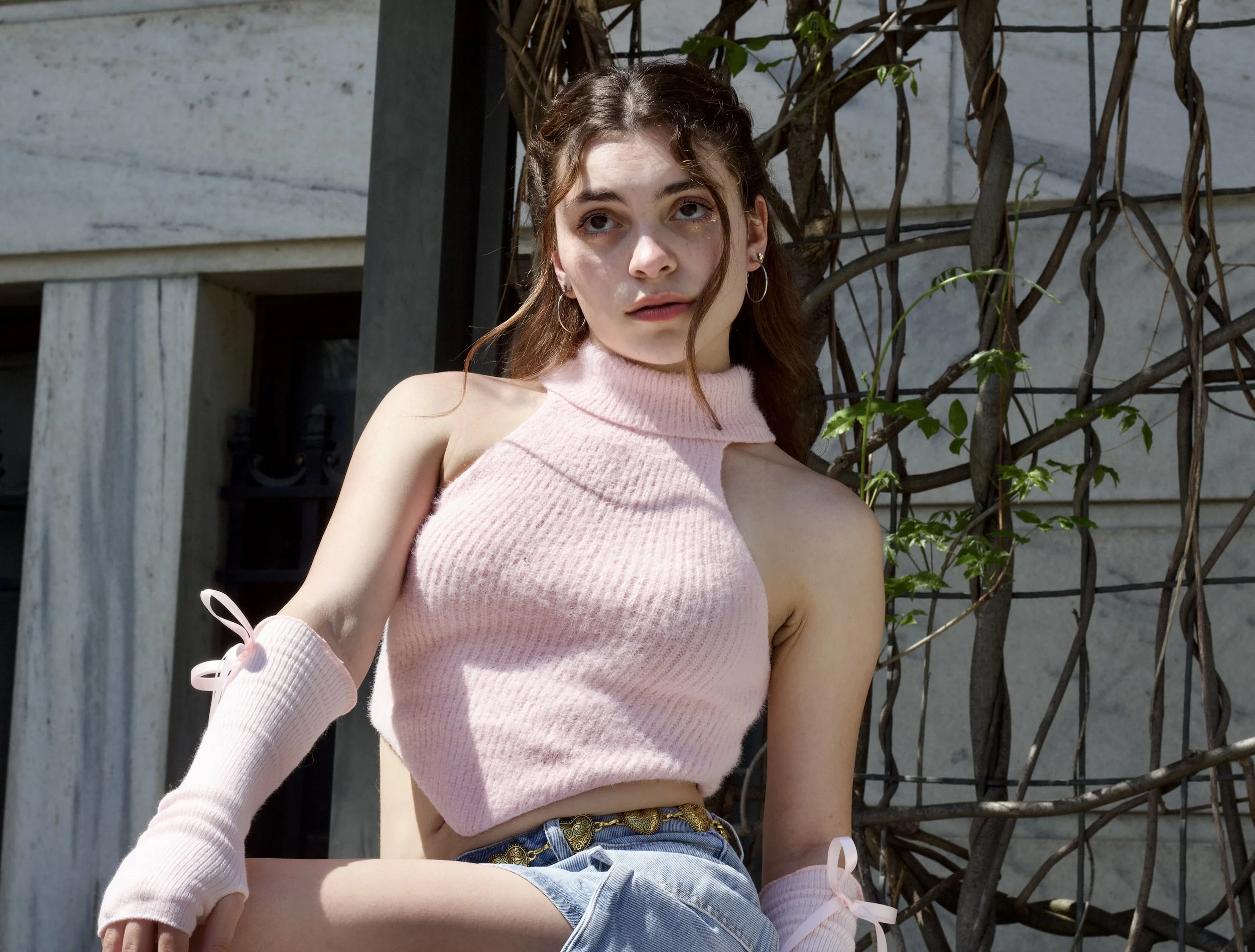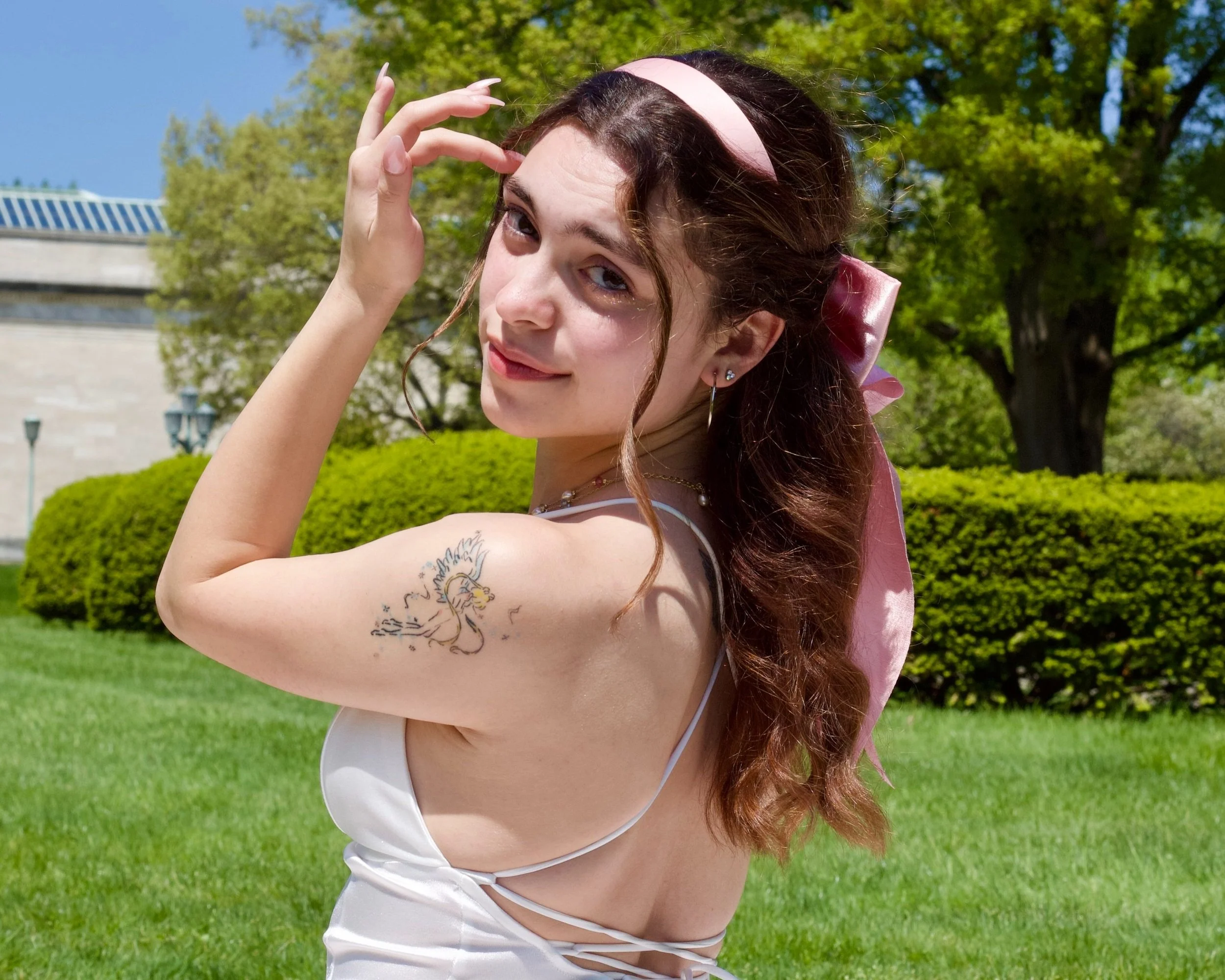SPOTLIGHT: ROSIE
Meet ROSIE and tune into her upcoming album “En Rose.”
Walk us through the moment you realized you wanted to be an artist. Was this something you knew from a young age or a recent revelation?
I always knew I wanted to do something in a creative field. It started with wanting to be a fashion designer, then a ballerina, then a choreographer, then on Broadway. Even though during the whole time I was trying to decide what career I wanted to pursue, I was writing lyrics, but I hadn’t even thought of actually becoming an artist. Sure, I’d sing and perform, but it never really crossed my mind as something I wanted to genuinely pursue until probably my freshman year of high school. I had been watching a documentary about a girl group that I really liked at the time, and seeing their love for their craft really drove me to realize that this isn’t just something I can do, but something I will do.
You mentioned writing lyrics before you even had instruments or production. How did that early focus on words shape your style today?
I think my focus being so heavily on words and lyricism has been both a blessing and a curse. I started writing at a young age, so of course, my first few songs were terrible and made no sense, but it was a start, and that early start allowed me to begin growing in that specific area of my artistry. However, at one point when I really started to take songwriting seriously, I got so pretentious with my lyricism, and I felt like every single song had to be this poetic, profound masterpiece of emotions that no one’s ever felt before. Then I realized that there isn’t a single emotion I could feel, or a thought I could have that no one has ever experienced before. So I just started writing what resonated with me in the moment, which is exactly what I had been doing as a kid.
What was it like teaching yourself electronic production starting in 2020? Were there any early challenges or surprises?
I’ll be completely honest, I’m still in such an early stage of learning how to produce. I started off by trying to piece together different samples, and what didn’t realize at the time (which seems so stupid and obvious now) is that in order for samples to work together, they’d have to be in the same key and tempo. I still laugh at myself every time I think about it.
How has being a completely independent artist? From writing to producing, has it influenced your approach to music overall?
Being entirely independent means I’m in charge of everything I do. Sometimes it’s by choice, other times it’s not. I love that I get to create my own concepts and flesh out the visions I have for projects, because everything I share is 100% me. Everything I do is to fulfill the passion collecting inside of me, and to give other people something to relate to. There’s no pressure to write a certain way or try a specific sound just because that’s what’s popular. I do whatever I want with my music, and having that freedom is what pushes me to curate everything in such detail.
Your debut EP, Frostbite, introduced you to listeners. How would you describe your growth between Frostbite and DREAMLIKE?
Frostbite was honestly such a last-minute decision. I had been saying I was going to release music all of 2023, and I hadn’t done so, so in the last two weeks, I decided to stop waiting around and just release something. So I’d say Frostbite was me just breaking the ice and making my presence known as an artist, while Dreamlike was me actually trying to build on my artistry. Frostbite feels so hollow now, compared to the emotion I put into Dreamlike, and especially compared to the emotion I’ve been putting into this new album.
As you’ve continued releasing singles, what have you learned about your creative process?
I’ve realized that I have to fully visualize an aesthetic for a song before I can give it my all. No matter the vibe or lyrics, every song has to have a vision board. Sometimes I’m able to make it before I’ve even started, sometimes it comes after the song is almost done, but something about seeing the emotion in front of me just ties it all together.
Is there a particular song from your earlier projects that still feels especially important to you now?
Working on En Rose, where a lot of the songs talk about relationships, a song I keep going back to is Butterfly Effect, which is about how I wouldn’t be the person I am now if I didn’t experience all the pain and hurt that I did. I went through the things I did, and I still managed to come out of it as a kind person who still has infinite love in her heart, which I’m really proud of.
Your upcoming album En Rose touches on self-growth and learning about love. What inspired you to explore these themes now?
I feel like I’ve touched on self-growth and what I want for myself a bit in Dreamlike, but a lot of the “love songs” I’ve written are just that- they’re fun and cute, but I haven’t actually touched on my true feelings of love and what love has been to me. There’s so much I have yet to experience, even though I’ve already been through so much- it’s like I’ve felt everything and nothing at the same time. I think a lot of my growth and what drives me as a person is so deeply rooted in the fact that I am just full of love. There’s so much love to give, and sometimes it feels like it has nowhere to go, and that can be really overwhelming, which is what a lot of En Rose is about.
The title En Rose has such a dreamy, almost romantic feel. What does that phrase mean to you personally?
I originally was going to use the full French phrase “La Vie En Rose” as the title, which translates to “life in pink”. I always knew I wanted to use the phrase (or at least part of it) for something, since I think it fits well with the brand I’m trying to build. It more accurately translates to “life through rose-colored glasses”, which to me can represent a lot of things relating to this album. There are songs that are pretty, fun, and romantic, and those are the ones that actively have you looking through the rose-tinted lenses. They’re the romanticizations of life, while the darker, more serious songs are to tell that sometimes you need to take the glasses off and realize you can’t always see life in pink- it’s not always going to be pretty, and you have to face that with honesty. Finding that balance is what’s important, and it’s something I’m still trying to work on.
Was there a specific moment or experience that really kick-started the writing for this album?
A lot of my inspiration originally came from growing up a dancer and not getting to finish off my dance career the way I wanted it. I felt like I was kind of in this limbo of letting that passion die and trying to find something to latch onto. I spent so much time dwelling on this failed dream that I eventually started seeing just how much I had been shaped by that environment and how growing up as a dancer really had an effect (and sometimes even still does) on every single aspect of my life.
How has your songwriting or production style evolved from your first releases to En Rose?
I have a much better grasp of the sound and concept I want to build. Frostbite feels like a test run of me trying to prove to myself that I could make and put out music, while En Rose is a mix of raw and tailored composition to honestly showcase how much of myself is put into my artistry.
Are there any tracks on the album that you think will really surprise listeners?
I feel like I’m always doing something new, so short answer: yes. I’ve been taking on a lighter, more fun sound lately, so I think it’s safe to say that’s what people might expect, but I’m definitely taking this opportunity to showcase my range in emotional expression, and I think that might shock some people.
You mentioned tackling standing up against disrespect. How do you balance vulnerability and strength in your lyrics?
I‘m honestly a pretty sensitive person, and when I care about people, my feelings tend to get hurt easily, but it’s very rare for me to stay in those feelings of hurt. I either write about it or talk about it with that person, and then I’m fine. Writing and working on music is where I’m most vulnerable. It’s easy to talk about how I’ve been hurt, and even how I’ve hurt others. It used to be really hard for me to be honest with my lyrics because I was scared of the judgment that might’ve come with being vulnerable, but now I feel like I can write about anything because I know someone will relate.
If En Rose could leave listeners with just one feeling or message after listening, what would you want that to be?
That you are in control of your life. You’re going to make mistakes, and have horrible days, and do things you regret, but at the end of the day, you choose how to recover from that. It’s really hard, but once you realize that, things start to become easier little by little.
After En Rose drops, what’s next for you creatively? Are there any dream collaborations or new directions you're excited to explore?
There are so many people I’d love to collaborate with that I wouldn’t even know where to start. I’d probably have to say Lizzy McAlpine, since she’s such an inspiration to me, especially for this album. But I’d probably also say RESCENE and ILLIT are both dream collabs since their sound and aesthetic are similar to mine at times. As for my next creative steps, I’m already lining up the next few releases to come after En Rose (which shouldn’t be too far away after this release), which I’m having a hard time not spoiling already. Let’s just say there will always be new music coming from me.
Listen to ROSIE’s latest single, First Warm Day of Spring, here.



